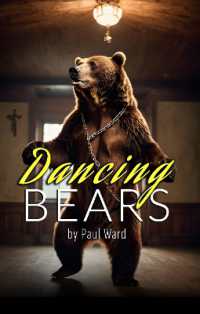- ホーム
- > 洋書
- > 英文書
- > Religion / Ethics
基本説明
New in paperback. Hardcover was published in 2004.
Full Description
'I am a Christian' is the confession of the martyrs of early Christian texts and, no doubt, of many others; but what did this confession mean, and how was early Christian identity constructed? This innovative study sets the emergence of Christian identity in the first two centuries, as it is constructed by the broad range of surviving literature, within the wider context of Jewish and Graeco-Roman identity. It uses a number of models from contemporary constructionist views of identity formation to explore how what comes to be seen as 'Christian' literature creates a sense of what to be 'a Christian' means, and traces both continuities and discontinuities with the ways in which Jewish and Graeco-Roman identity were also being constructed through their texts. It seeks to acknowledge the centrality of texts in shaping early Christianity, historically as well as in our perception of it, while also exploring how we might move from those texts to the individuals and communities who preserved them. Such an approach challenges more traditional emphases on the development of institutions, whether structures or credal and ethical formulations, which often fail to recognize the rhetorical function of the texts on which they draw, and the uncertainties of how well these reflect the actual practice and experience of individuals and communities. While building on recent recognition of the diversity of early Christianity, the book goes on to explore the question whether it is possible to speak of a distinctive Christian identity across both the range of early texts and as a pressing historical and theological question in the contemporary world.
Contents
1. Introduction: The Emergence of Christian Identity ; 2. Text and Identity ; 3. History, Memory, and the Invention of Tradition ; 4. Boundaries ; 5. The Grammar of Practice ; 6. Embodiment and Gender ; 7. Space and Place ; 8. The Christian Race ; 9. 'The Other' ; 10. Made Not Born: Conclusions








